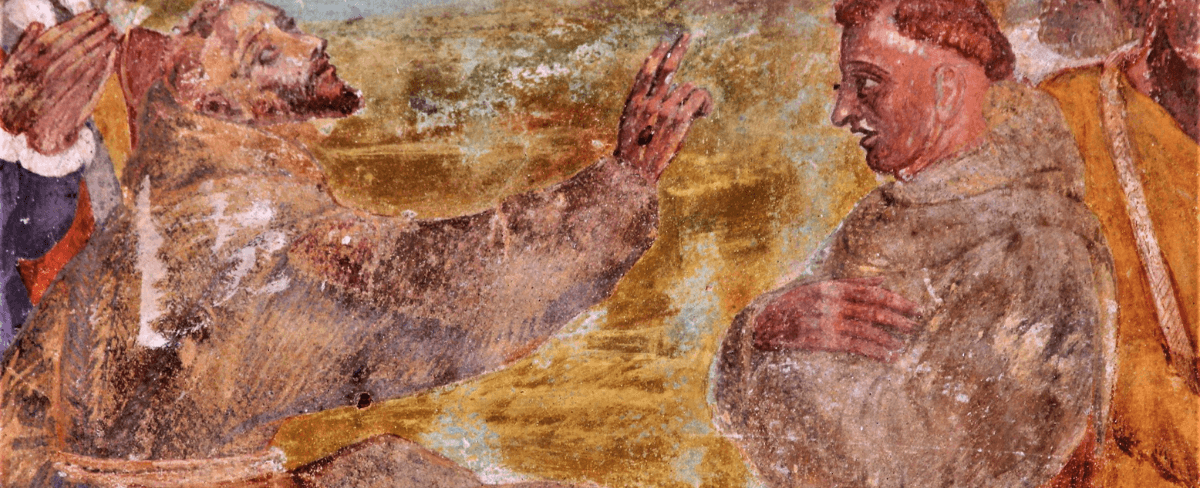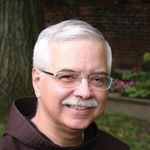Ash Wednesday: A Time for a Reality Check

This blog begins our Lent 2023 reflections on the Franciscan Intellectual-Spiritual Tradition. Early Franciscans considered themselves part of the great penitential movement of their times: men and women who were trying to hear the Gospel afresh and turning their hearts more deeply to the coming of God’s Kingdom. Therefore, the liturgical season of Lent, dedicated as it is to a profound conversion of mind and heart, naturally occupied a special place in their lives.
The two prayers for conferring ashes on Ash Wednesday say it all: “Remember that you are dust, and to dust you shall return” or “Repent and believe the Good News.” Each one gives a person plenty to check on during Lent.
Name your blind spots and take action
I see Lent as a reality check about my ongoing conversion: At progressively deeper levels, am I telling myself the truth about my following of Christ as a Friar Minor? Lent is a time to name blind spots and take action. It is also a time to accompany those who are preparing to be baptized or to make a Profession of Faith at the Easter Vigil.
What could be a bigger reality check than the fact that I will one day die, and God will not be fooled by the lies that I have told myself and others? Almost 70 years ago one U.S. politician said that another politician didn’t know the difference between the truth and a lie. It’s not a new problem or one reserved to certain professions or vocations.
I use the term “reality check” because my own experience as a sinner and a priest who has heard confessions for 48 years has convinced me that although sins end in different places (murder and bank robbery are not the same), every sin begins in the same place: telling a lie to oneself. For example, “I could not have foreseen the consequences of my decision”; “they misunderstood me”; “they’ll get over it”; “life is difficult”; and this dreary list goes on and on.
The first consequence of sin
When Jesus described a Pharisee and a tax collector praying in the Temple, isn’t it obvious that the Pharisee is a train wreck waiting to happen? He is probably telling the truth when he says he is not greedy or adulterous, but you know his truth cannot be genuine because he starts by saying, “I thank you, God, that I am not like other people.” His list of sins may differ from that of other people, but it is certainly more well buried. We don’t know about the tax collector’s life after he prayed in the Temple that day, but he clearly had at least one moment of truth when he said, “Lord, have mercy on me, a sinner.”
If I want to drive to a distant city, my journey can end in a great variety of places, but regardless of my destination, each trip began in the same place (my home).
Adam and Eve lied to themselves about what they were doing and the expected outcome of their decision to eat the forbidden fruit. Then they tried to lie to God, but that didn’t work. Is it a coincidence that fleeing from personal responsibility is the first consequence of sin?
Francis keeps several Lents each year
St. Francis of Assisi kept several Lents each year. In addition to the one from Ash Wednesday to Easter, he kept a Lent in preparation for the feast of St. Michael, one from All Saints Day to Christmas, from Epiphany to Ash Wednesday—to name only a few.
What was Francis doing during these Lents? He was fasting and praying to know God’s will for him and for the friars. Perhaps one Lent helped him deal with a friar who was so proud of keeping silent that he refused to confess his sins. Although some other friars considered this man very holy, Francis was not deceived. He ordered this friar to confess his sins to a priest of his choosing. The friar refused and soon afterward left the fraternity.
Last December, Pope Francis spoke to members of the Roman Curia, warning them to beware of “elegant demons,” the ones that when cast out gather reinforcements and come back with ever more appealing temptations.
Holiness requires deep honesty
Lent is about prayer, fasting, and the works of mercy; no one of these practices is likely to foster the deep honesty that holiness always requires. If holiness is the result of being open to God’s grace, then sin digs in deeply, using lies as protective armor. Sin and addiction are not the same thing, but each one refuses to stop lying to oneself.
May Lent 2023 help us to know in honesty and thus engage in the corporal and spiritual works of mercy!
-----
Main image: The photo of a restored fresco found at a former Franciscan friary, "San Francesco a Borgo," in Tuscany, Italy, is provided by Greg Friedman, OFM. The friary is now a place of care for the elderly.
Pat McCloskey, OFM
Editor of St. Anthony Messenger
Pat McCloskey, OFM, Franciscan editor of St. Anthony Messenger, has an MA in Franciscan studies. Peace and Good: Through the Year with Francis of Assisi (Franciscan Media) is his latest book.

